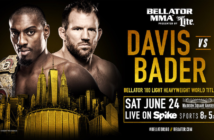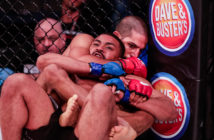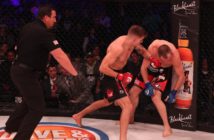
The success of the event was not just a case of pounds and pennies, with the British fans creating a raucous atmosphere in an O2 Arena as they cheered on the home fighters. And they were rewarded with some great action, most notably the main event where Michael Bisping defeated in Yoshihiro Akiyama in one of the fights of the year. As expected both tried to push the action standing, letting their hands and feet fly as they engaged in a back and forth standing battle.
There was less good news for British fighters further down the card, with British fighters going 3-5 over the course of the event. And the cause of two of the more high profile defeats can be to the traditional weakness of British fighters, wrestling! Despite being favored going in both John Hathaway and James Wilks were manhandled for three straight rounds. In different ways both performances were surprising, with Hathaway having been expected to be more competitive wrestling against Mike Pyle after the manner of his victory against Diego Sanchez at UFC 114 while Wilks had previously shown a greater ability to threaten off his back than he demonstrated against Claude Patrick.
And whilst Rob Broughton and Paul Sass were able to pick up submission victories on the undercard both displayed worryingly poor wrestling. In Broughton’s case this is perhaps to be expected given his kickboxing base but Sass was held up a British fighter who atypically led with his grappling. And indeed he showed tremendous offensive jiu-jitsu, going for multiple submissions before finally locking on the triangle choke. But one should not ignore the fact that he spent most of the fight on his back with Holst repeatedly taking him down, often by countering poor takedowns from the Brit. It didn’t cost him the fight at UFC 120 but against a better wrestler with a more controlling top game Sass will surely struggle to make the most of his undoubted grappling skills.
Whilst one should always be careful to avoid judging an entire country based on the performance of individual fighters, the fact that a young prospect like Sass hasn’t got even adequate wrestling is a cause for concern. As Dana White told a young trainee fighter at the Q&A on Friday, you have to be able to effectively wrestle if you’re going to find lasting success in the UFC. It’s obviously unrealistic to compare Britain to America, as Jon Jones and Rashad Evans were both surprised to find out Britain just doesn’t have the network of school, college and club teams that make wrestling one of the largest participation sports in America. Despite this there is the opportunity to promote wrestling to young British athletes, using England’s recent success in the wrestling tournaments at the Commonwealth Games and the upcoming London Olympics as a platform to improve the facilities and coaching available in the UK. The likes of Bisping have shown that with the right facilities British fighters can quickly develop very good wrestling and for the future development of British MMA it’s crucial that opportunities are seized to provide such facilities to more and more fighters.



